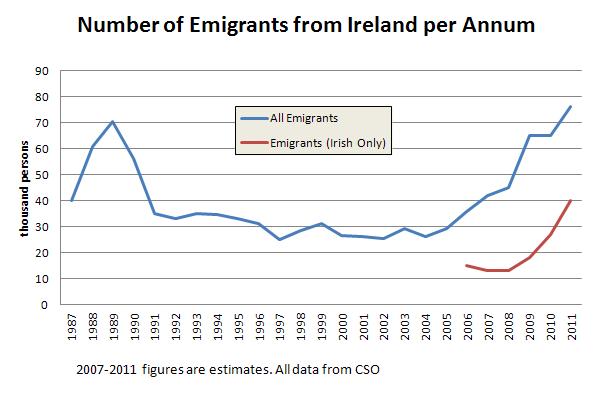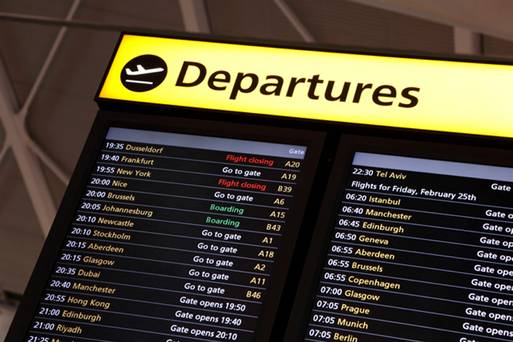Antony Wolfe | Contributing Writer
Emigration out of Ireland has long been a staple of the Irish psyche. The present day is no different.
The latest CSO data shows that 50,900 Irish people emigrated in the 12 months leading to April 2013. This figure equates to just fewer than 140 people passing through the departure gates of Irish airports every day to pursue a life abroad. What is worse is the cost to the Irish State of educating these emigrants, only to get a return of zero on their investment. In this respect, emigration is a waste of resources economically, not even taking into account the human cost of seeing loved ones depart for foreign shores. The 50,900 figure is not simply a huge number in itself – each and every person included in that figure is a son/daughter, brother/sister, relative and friend. Education and employment, and the policies linking the two issues, are among the main topics that will decide the outcome of the next general election in 2015. There is a growing concern that the weak labour market dominates the list of push factors behind this emigration. What is the point of having a knowledge economy with young, highly-educated workers if they are leaving to work in foreign countries? The Irish economy will not gain a return on the money spent on educating these young Irish graduates. But exactly how much does the emigration per year cost Ireland?
First, we need to find the cost per student to the State. Education was allocated €8.5 billion in the 2013 Budget, and CSO figures show that there were 605,000 students still in the education system this year. A very simple calculation therefore gives a cost of just over €14,000 per student for the government. If we factor in the 14 years it takes to complete primary and secondary education in this country, this translates to a cost to the State of €196,000 per student to complete the education system.

Naturally, some emigrants may not have completed the entirety of their education in the Irish system. Some may be leaving to travel with the intention of returning after a few years, amongst various other reasons. But as if the figure of €196,000 per student didn’t look bad enough, imagine if we assume that just half of the 50,900 Irish who emigrated will not return to work in Ireland (a very conservative estimate). Multiplying the cost to the state per student by only half of those that emigrated last year gives a loss of €4.98 billion. The waste of emigration becomes even starker. The scariest part of this figure is that it only includes the cost of educating those who have emigrated in just the past year. It does not take into account other years or any potential contribution to the economy while working in the future, either through taxes, innovation or entrepreneurship. The bottom line is that foreign economies will reap the benefits of Ireland’s investment in the education system.
Young Irish people need the proper incentives to stay and work in Ireland. The government should be commended for at least trying to curb youth unemployment through schemes such as JobBridge, intended as an internship with a bridge towards full-time employment with that employer. Joan Burton, the Minister who launched the scheme, declared it a success in May 2012, claiming that 38% of people in the scheme were now in full-time employment. However, a Sunday Times article around the same period reported a 75% drop-out rate from the scheme. It appears the JobBridge programme, intended as a dam, is fighting in vain against the current of the brain drain of highly-educated graduates flowing out of Ireland. More employment schemes are needed to incentivise graduates to remain in Ireland.
We all know Irish people who have emigrated to work abroad and, personally, I am sick of saying goodbye to friends and relatives destined for foreign economies. I am emigrating in a month’s time and my intention is to return here, should the right employment opportunity arise. I am sure many other emigrants would feel the same way once the right employment incentives are in place. Highly-educated graduates emigrating in the absence of suitable employment opportunities in their field is a waste to the Irish economy. This is an issue that will go a long way in deciding the next general election. Spending billions on education to produce a highly-educated workforce is pointless when there is no return gained.







